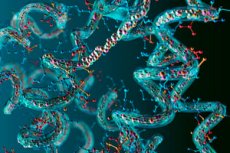Statins may block an inflammatory pathway involved in cancer development
最近審查:14.06.2024

A new study from researchers at the Massachusetts General Cancer Center, a core member of the Mass General Brigham health care system, shows that statins, a widely used cholesterol-lowering drug, may block a specific pathway involved in in the development of cancer caused by chronic inflammation. The research results were published in Nature Communications.
"Chronic inflammation is a leading cause of cancer worldwide," said senior author Sean Demery, MD, a senior investigator at the Center for Cancer Immunology and Skin Research Center at Massachusetts General Hospital and an assistant professor of dermatology at Harvard Medical School. “We examined the mechanism by which environmental toxicants trigger the onset of chronic inflammation that predisposes to skin and pancreatic cancer,” says Demery, who is also a Bob and Rita Davis Family MGH Research Scholar 2023-2028. "In addition, we have explored safe and effective treatments to block this pathway to suppress chronic inflammation and its cancer-causing consequences."
Demery and his colleagues' research relied on cell lines, animal models, human tissue samples and epidemiological data. Experiments in cells have shown that environmental toxicants (such as allergens and chemical irritants) activate two interconnected signaling pathways called TLR3/4 and TBK1-IRF3. This activation leads to the production of the protein interleukin-33 (IL-33), which stimulates inflammation in the skin and pancreas, which can contribute to the development of cancer.
In screening a library of FDA-approved drugs, researchers found that the statin pitavastatin effectively suppresses IL-33 expression by blocking activation of the TBK1-IRF3 signaling pathway. In mice, pitavastatin suppressed inflammation caused by environmental exposures to the skin and pancreas and prevented the development of inflammatory pancreatic cancers.
In human pancreatic tissue samples, IL-33 was overexpressed in samples from patients with chronic pancreatitis (inflammation) and pancreatic cancer compared to normal pancreatic tissue. Also, in an analysis of electronic health records data from more than 200 million people in North America and Europe, pitavastatin use was associated with a significantly reduced risk of chronic pancreatitis and pancreatic cancer.
The results suggest that blocking IL-33 production with pitavastatin may be a safe and effective preventive strategy for suppressing chronic inflammation and the subsequent development of certain cancers.
“The next step is to more thoroughly study the effect of statins in preventing the development of cancer in chronic inflammation in the liver and gastrointestinal tract and to identify other new therapeutic approaches to suppress chronic inflammation that predisposes to cancer,” Demery said.

